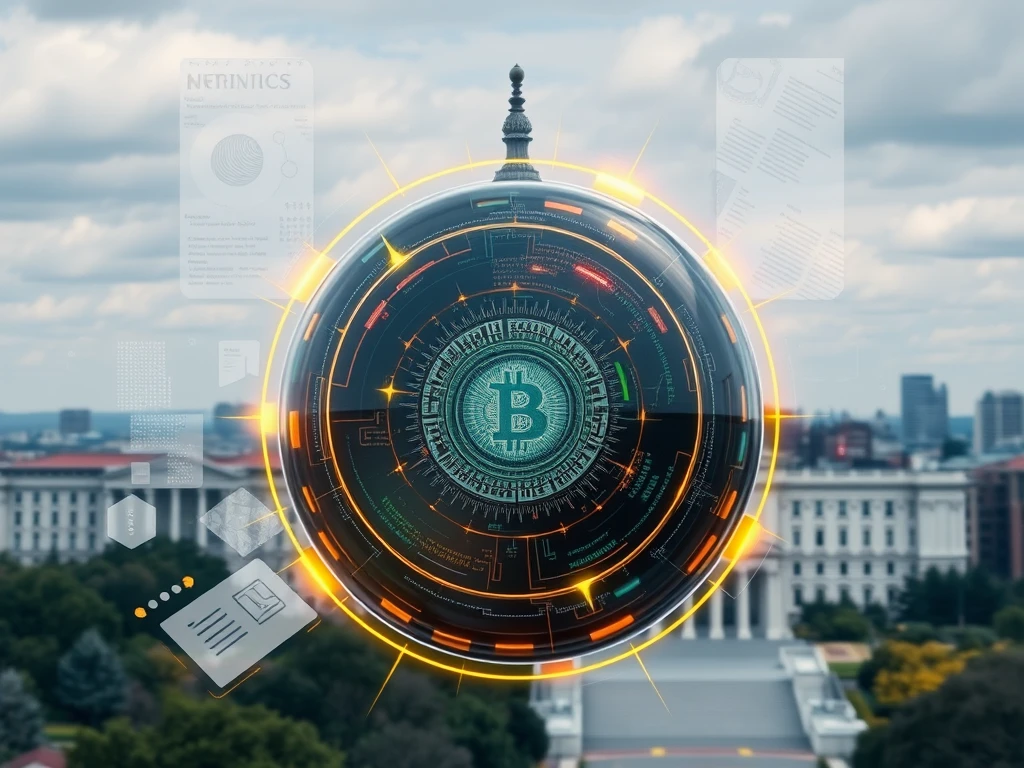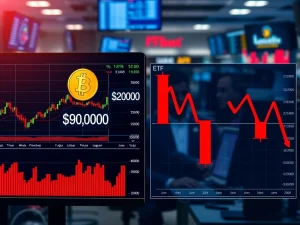Alarming US Privacy Concerns Mount for OpenAI’s Worldcoin Project

OpenAI’s ambitious World project, known for its unique approach to digital identity using iris scans and cryptocurrency, is now making significant inroads into the United States. This expansion, however, is triggering widespread alarm among privacy advocates and experts, raising critical questions about data protection in a nation with a complex patchwork of US privacy laws. The core of the debate centers on the collection and handling of sensitive biometric data, a practice at the heart of the Worldcoin system.
Why is Worldcoin Facing Heightened Privacy Concerns in the US?
Formerly called “Worldcoin,” the project developed by Sam Altman’s OpenAI aims to create a global identity and financial network. Its method involves scanning users’ irises with a device called the Orb to verify they are unique humans. While World claims this process is privacy-preserving, critics argue it’s anything but. Nick Almond, CEO of FactoryDAO, bluntly called it “the opposite of privacy. It’s a trap.”
The project’s move into the US introduces a unique challenge due to the nation’s lack of a single, comprehensive federal law governing biometric data. Instead, regulations and enforcement differ significantly from state to state, creating an uncertain landscape for both the company and potential users. This fragmented legal environment means user protections can vary wildly depending on where they participate in the Worldcoin network.
Navigating the Patchwork of US Privacy Laws
World recently announced plans to establish scanning locations in key US innovation hubs across five states: Atlanta, Austin, Los Angeles, Miami, Nashville, and San Francisco. This geographic spread highlights the challenge:
- States with Biometric Laws: Texas and California have specific laws addressing biometric data.
- States Relying on Federal Law: Georgia, Tennessee, and Florida currently lack specific state-level biometric protections, meaning users there primarily rely on broader federal mandates requiring companies to be transparent and fair.
Even in states with laws, enforcement varies. In Texas, for instance, only the state Attorney General can bring action under the biometric law; individuals cannot sue privately. Andrew Rossow, a cyber and public affairs attorney, notes that the effectiveness of protections in Texas “hinges almost entirely on the Texas AG’s priorities, resources and willingness to act.” A less aggressive administration could leave consumers vulnerable.
Global Scrutiny and Bans on Worldcoin
The privacy concerns aren’t limited to the US. World has faced intense regulatory scrutiny and outright bans in several countries:
- Investigations: India, South Korea, Italy, Colombia, Argentina, Portugal, Kenya, Indonesia, and Germany have launched probes into World’s data collection practices.
- Bans: Spain, Hong Kong, and Brazil have issued outright bans on World’s operations, citing issues like insufficient information provided to users, collecting data from minors, and the irreversible nature of biometric data collection.
- Orders to Delete Data/Fines: Germany and Kenya have ordered data deletion, while Colombia and Argentina have issued significant fines.
World maintains it operates lawfully wherever available, but the mounting global regulatory actions underscore the serious nature of the privacy concerns associated with its model.
Activist Warnings and Potential for Discrimination
Privacy groups like Privacy International and Amnesty International have voiced strong opposition, warning that without robust legal frameworks and safeguards, biometric data technologies pose grave threats. They argue these systems can facilitate discrimination, profiling, and mass surveillance. Concerns have also been raised about the scientific validity of inferences made from biometric data, pointing to potential flaws that could operationalize discriminatory theories.
Differing Perspectives and Potential Use Cases
Despite the controversies, not everyone is convinced of the dire warnings. Tomasz Stańczak of the Ethereum Foundation, after extensive analysis, found Worldcoin “very promising and much more robust and privacy-focused than my initial intuition.” Paul Dylan-Ennis, an Ethereum researcher, believes the technology is likely strong on privacy but notes the “Black Mirror-ness” aesthetic might deter some.
Meanwhile, the project is exploring practical applications. In Japan, Match Group is trialing Worldcoin ID verification on Tinder, allowing users a “privacy-first way to prove they’re real humans.” This integration, if successful, could provide a major use case, potentially opening doors to partnerships with other popular dating apps in the US like Bumble or Hinge, offering a pathway to integrate tens of millions of users into the World identity platform.
US Precedents and the Future of Biometric Data
The US legal landscape for biometric data is still evolving, with ongoing court cases and legislative efforts. Recent events, such as Google’s $1.4 billion settlement with Texas over data tracking and facial recognition collection, highlight the significant financial and legal risks associated with handling such sensitive information in the US. As OpenAI pushes forward with Worldcoin in this environment, it faces the challenge of building user trust while navigating uncertain and potentially punitive US privacy laws.
Summary: Balancing Innovation and Protection
OpenAI’s World project represents a bold step towards a digital identity system, but its expansion into the US shines a harsh light on the significant privacy concerns surrounding biometric data collection. The lack of a uniform federal law means user protections vary greatly depending on the state, creating potential vulnerabilities. Coupled with mounting global regulatory pressure and activist warnings about discrimination and surveillance, Worldcoin faces an uphill battle to gain widespread acceptance and trust. While potential use cases like identity verification in dating apps exist, the fundamental challenge remains: how to innovate with sensitive personal data in a way that genuinely safeguards user privacy in a fragmented legal world.






